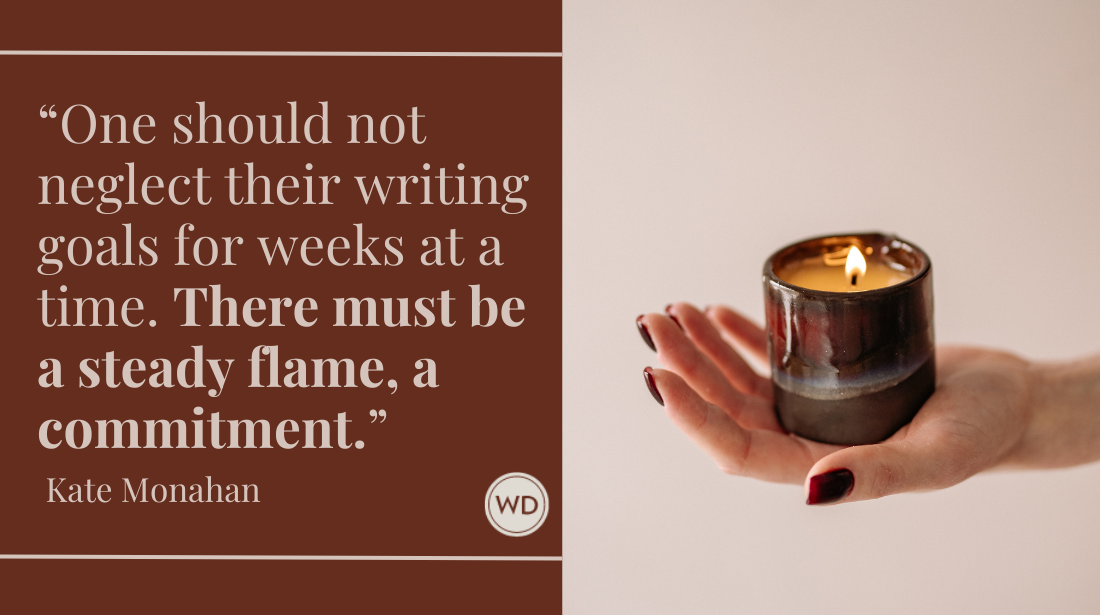Quieting the Mind
I’m so excited to get my hands on author Dani Shapiro’s upcoming memoir, Devotion, which is available next month. The memoir is about her “search for something to believe.” You…
I’m so excited to get my hands on author Dani Shapiro’s upcoming memoir, Devotion, which is available next month. The memoir is about her “search for something to believe.” You can watch the book trailer on her website here. I remember reading Shapiro’s first beautifully written memoir, Slow Motion, years ago and just being blown away by it. And her blog, Moments of Being, is one of my favorite author blogs…It always gets me thinking. Every post explores aspects of the writing process and writing life. Recently, she posed this question:
How do we find the quiet space we need in which to write?
I’ve wondered about this myself.There’s the phone ringing, the dog barking, all those other chores and responsibilities that keep us frazzled. And there’s also the chaos in our minds. Those thoughts that keep us awake at night, the obsessions that unravel us. How do we quiet all this? Make space for new thoughts, creative thoughts?
Here’s an excerpt from Shapiro’s blog:
How do we find the quiet space we need in which to write? By this I don't mean finding rooms of our own. I've written before about rooms of our own, which are important, if not essential. But physical space isn't the whole story. In order to write, by which I don't mean dashing off quick, half-thought-through emails or addressing envelopes, but rather, the process of being led to the page by the words and thoughts themselves, we need quiet inside ourselves. Emotional, psychological, spiritual, mental silence. A snow globe comes to mind; shake it up, watch the flurry of whiteness until finally it's all settled at the bottom and the thing itself--the image, the symbol, the panorama, is clear and visible.
An old professor of mine told us she used to write only on Wednesdays and every Wednesday she would take a bath before she began her process. The bath, she said, calmed her. And by choosing a specific day to write, she was able to mentally plan for the work ahead of her.Another teacher of mine said he would lock himself in the smallest place possible, a place with no windows, no view, nothing to distract him from the world inside his head. A good friend writes songs—this relaxes her. Another uses positive affirmations: I will focus on nothing but my writing. The rest can wait. I’ve tried music. Classical. And it helps a bit, it does. Candles are nice, too. You can kind of stare into them, lose yourself, which helps empty the mind. I suppose meditation would work well. Sitting there, even if it’s for ten minutes, and letting one’s thoughts run their course until they’ve tired themselves out and surrendered. Writing outside always seems to clear my head. There is something about nature that relaxes one’s inner dialogue.
And how--as writers--can we possibly know ourselves, be our own best instrument--if we can't hear what's in there, Shapiro says.
Yes, there is a lot in there. We have the capability of creating great art, of making things up, putting things down, developing worlds of fiction (and non-fiction). But if we can’t access that play, those pure thoughts, than our art can suffer.
Deep breaths, my yoga teacher friend always says. Deep breaths.
Perhaps that’s a start?
How do you slow down? How do you quiet your mind?Read Dani Shapiro’s full post, On the noise in my head, to see how the author copes.
“To have a quiet mind is to possess one's mind wholly; to have a calm spirit is to possess one's self.” –Hamilton Mabie







